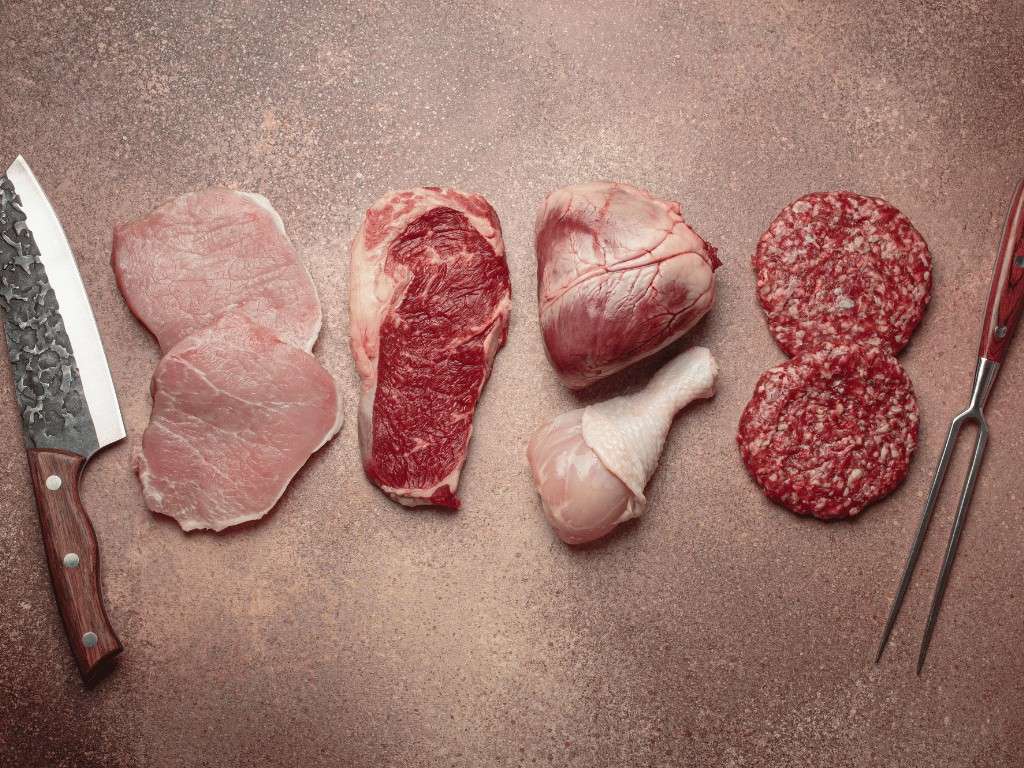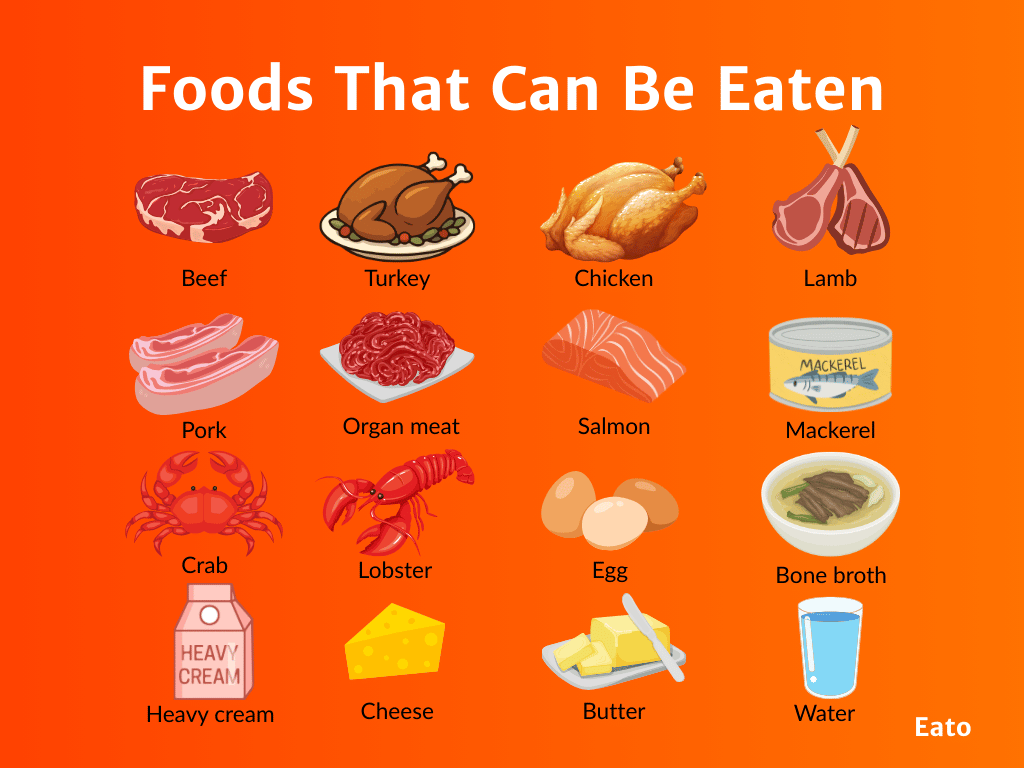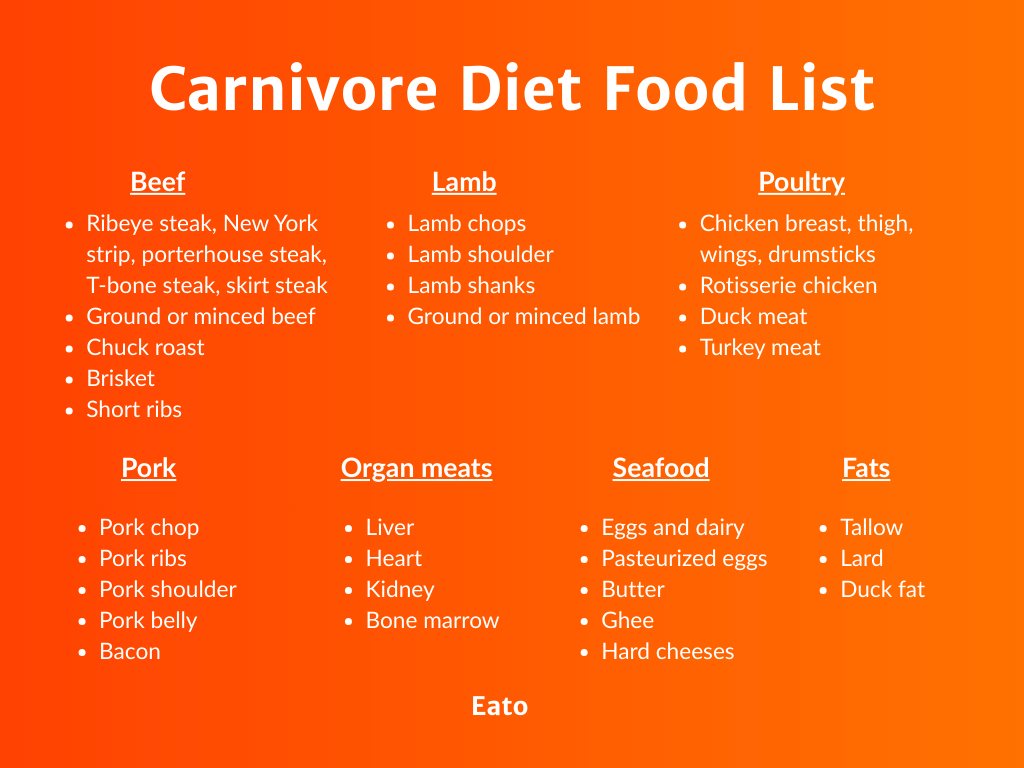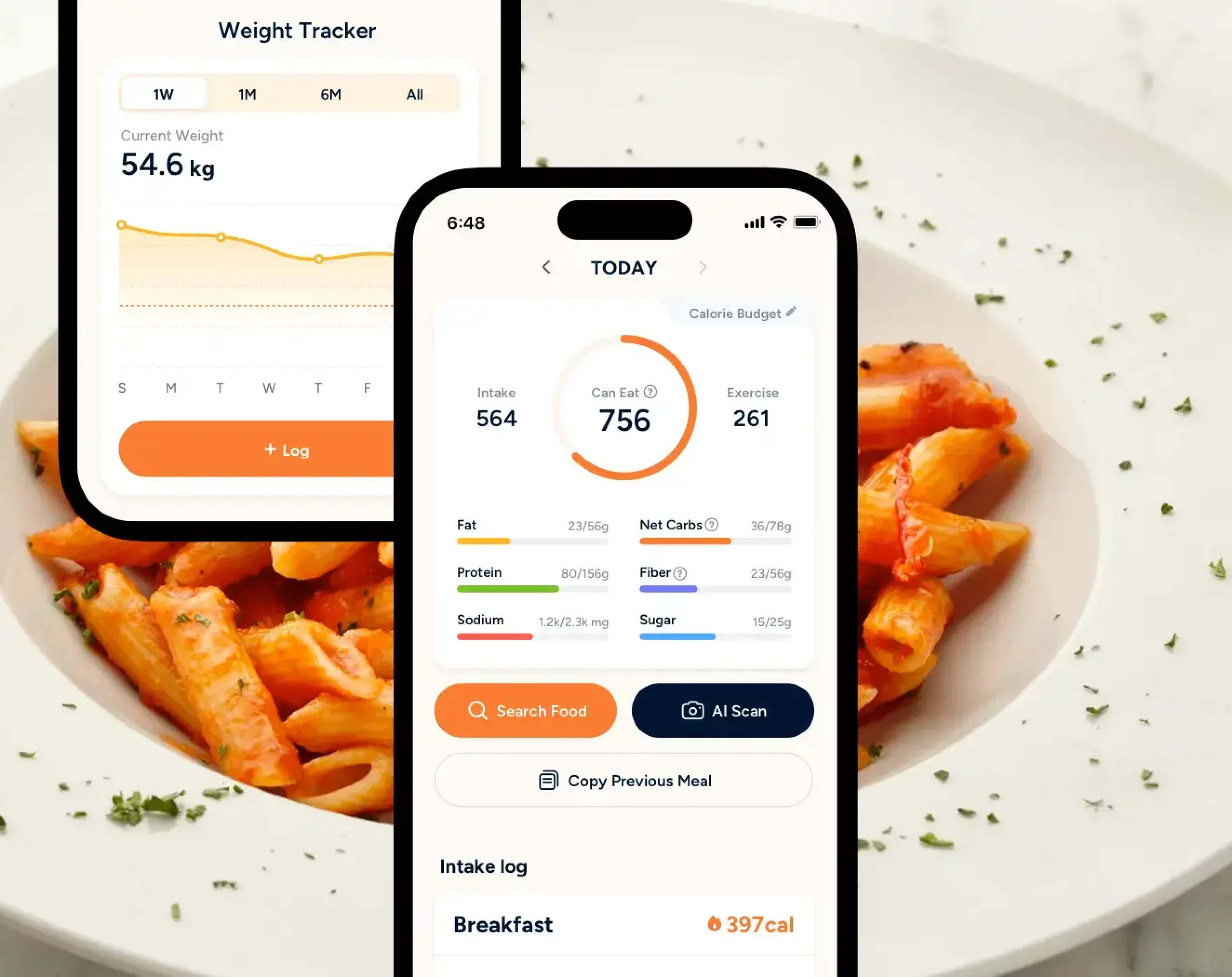While most nutritionists and diets out there recommend filling half your plate with vegetables, a growing number of people are doing the exact opposite by eating only meat, fish, and animal products. This growing diet trend is known as the carnivore diet.
Unlike other diets, the carnivore diet is seen as a rather extreme diet as it eliminates all kinds of fruits, vegetables, grains, and more. Supposedly, doing so is meant to accelerate weight loss and reduce inflammation, and promote better digestion. However, it can be argued that the diet may pose more risks than benefits.
Key Takeaways
- The carnivore diet is a rather restrictive diet, consisting only of animal-based foods like meat, eggs, seafood, and dairy while eliminating all plant-based foods.
- Potential benefits include weight loss and better blood sugar control, but research on its long-term effects is still very limited.
- Major health concerns include nutrient deficiencies, gut issues, and cardiovascular risks due to the lack of fiber and high saturated fat intake.
- The diet is not suitable for everyone, especially people with heart disease, kidney problems, gout, osteoporosis, or pregnant/breastfeeding women.
- Eating a balanced diet is still the safer approach to support long-term health.
What is the Carnivore Diet?

Although always being compared to the ketogenic diet, or keto diet for short, due to their similarities in excluding carb sources, the primary difference between the diets is actually how much carbs is allowed. To put it simply, the keto diet is still less restrictive than the carnivore diet, as you can still consume carbs, but in lesser amounts. For example, instead of having regular pasta, a keto friendly option would be a low carb pasta alternative. On the other hand, the carnivore diet is stricter, where you cannot consume any carbs, even from keto-friendly sources like fruits, vegetables, grains, nuts and seeds, or even legumes.
In short, being on the carnivore diet is extremely restrictive, and exclusively consuming animal products, eating only meat [1], poultry, seafood, eggs, fish, and dairy products. Although there have been claims of the carnivore diet being able to support metabolic health, fight inflammation, and promote weight loss, research surrounding this is still limited [2].
How to Follow the Carnivore Diet
Following the carnivore diet requires you to make significant changes to your current diet plan. If you are consuming plant foods, you will have to eliminate them.
The main thing you want to focus on is your grocery shopping. You will need to shop for foods that align with the diet guidelines. This means shopping for red meat, poultry, and seafood. You can also consume water and bone broth, since they’re not considered plant-based foods.
What Can You Eat on the Carnivore Diet?

Since it’s a highly restrictive diet that only allows you to consume animal-based foods, you may wonder what exactly you can eat or what you can’t eat.
Here is a list of some foods that you can eat while following the diet:
- Beef
- Turkey
- Chicken
- Lamb
- Pork
- Organ meats
- Salmon
- Mackerel
- Crab
- Lobster
- Eggs
- Bone broth
- Heavy cream
- Hard cheese
- Butter
- Water
What Are You Not Allowed to Eat in a Carnivore Diet?
In terms of food restriction, it’s anything that is non-meat or animal products.
Some examples of foods to avoid include:
- All vegetables
- All fruits
- Milk
- Yogurt
- Beans
- Lentils
- Nuts and seeds
- Rice
- Wheat
- Bread
- Quinoa
- Alcohol
- Sugar
- Soda
- Coffee
- Tea
- Fruit juice

Smarter Nutrition Tracking
Track calories and over 100 other nutrients all in one place.
Download Eato For FreeOverview of the Carnivore Diet Food List

The previous section only gave a small glimpse of foods that you can include and exclude from your diet. However, those who do grocery shopping may not know the exact extent of what foods are allowed.
Here’s a full overview of the carnivore diet food list:
Beef
- Ribeye steak, New York strip, porterhouse steak, T-bone steak, skirt steak
- Ground or minced beef
- Chuck roast
- Brisket
- Short ribs
Lamb
- Lamb chops
- Lamb shoulder
- Lamb shanks
- Ground or minced lamb
Poultry
- Chicken breast, thigh, wings, drumsticks
- Rotisserie chicken
- Duck meat
- Turkey meat
Pork
- Pork chop
- Pork ribs
- Pork shoulder
- Pork belly
- Bacon
Organ meats
- Liver
- Heart
- Kidney
- Bone marrow
- Seafood
Eggs and dairy
- Pasteurized eggs
- Butter
- Ghee
- Hard cheeses
Fats
- Tallow
- Lard
- Duck fat
Benefits of Following the Carnivore Diet
Due to a lack of research about the carnivore diet, it’s hard to say what the health benefits of this diet are with certainty.
For the most part, we can only infer the possible benefits of this diet based on various studies of similar diet restrictions. Reducing carbohydrate intake, or going on a low-carbohydrate diet, for instance, is shown to be an effective treatment option for obesity and type 2 diabetes [3]. Various clinical studies and trials have found that reducing carb intake can help to improve glycemic control for type 1 and type 2 diabetes patients and help them to lose weight over time.
Reducing your intake of high-carb and high-sugar foods plays a role in maintaining a balanced and healthy diet overall. That said, this does not mean that the carnivore diet is healthy and recommended for individuals struggling to manage their weight or diabetes, which will be addressed in the next section.
Is the Carnivore Diet Healthy?
Diet advocates claim that the carnivore diet helps to improve our metabolic function, lower blood sugar levels, improve energy levels, and lower inflammation in the body. But the truth is, there aren’t many studies to support the benefits of following the diet.
Instead, there are many concerns and risks surrounding the diet, primarily because of how strict the diet is [4]. It excludes many foods that provide essential nutrients for cardiovascular health, bone health, and overall immune function.

Weight Loss Has Never Been Easier
Get accurate nutrition info instantly. Keep track of your progress.
Download Eato For FreeCarnivore Diet Side Effects
Just like other highly restrictive fad diets, being on the carnivore diet can have some negative side effects (both long-term and short-term) you might want to know about before starting it:
a) Nutritional deficiencies
Due to the highly restrictive nature of the carnivore diet, it is likely that being on the diet can result in nutrient deficiencies of essential micronutrients like vitamin C, magnesium, potassium, fiber, vitamin C, iron, folate, iodine, and calcium, despite being able to meet the nutritional requirements for vitamin B6, Vitamin B12, selenium, and zinc [2]. Missing out on these essential nutrients may negatively impact your bone health, cardiovascular health, and immunity.
b) Digestive health issues
As mentioned earlier, the nutritional needs of essential nutrients and food groups aren’t being met when on an extremely restrictive diet, and one of the important components that is excluded is dietary fiber, which plays a massive role in stabilizing and ensuring that you have a healthy gut microbiome.
In the worst-case scenarios, not having enough fiber can lead to constipation, inflammatory disease, and even cancer [5].
c) Risk of cardiovascular disease

It comes as no surprise that there’s also an increased cardiovascular disease risk by following the diet, since it’s primarily high in saturated fats and cholesterol.
Many studies have found that diets that consist largely of red and processed meats are found to be at an increased risk of cardiovascular disease [6]. It’s also worth noting that processed meats are often linked to a higher risk for certain cancers, including colon cancer.
At this current juncture, there’s still a lack of research that focuses on how only eating animal foods can affect our health.
Who Should Avoid the Carnivore Diet?
Unlike other diets, the barrier of entry to the carnivore diet is higher and definitely not for everyone. Especially if you are suffering from pre-existing health conditions (e.g., kidney disease, heart disease), problems with your health, have a history of eating disorders, gout, or osteoporosis.
Additionally, due to the possible nutritional deficiencies that you may face, pregnant or breastfeeding women should avoid the carnivore diet. As usual, you should always consult with your healthcare provider to understand the risks before making any major changes to your diet.
Carnivore Diet Meal Plan Example
Disclaimer: This meal plan example is only meant to provide readers with a visual idea of how restrictive the diet can get. It’s not meant to be taken as medical or nutritional advice.
Breakfast
- 3 scrambled eggs cooked in beef tallow
- 3 slices of bacon
Lunch
- 8 oz ribeye steak
- Bone broth (unsalted or lightly salted)
Snack
- Sliced beef jerky (no sugar or additives)
- 1–2 boiled eggs
Dinner
- 6 oz salmon (pan-seared in butter)
- 4 oz grilled lamb chops
The Final Takeaway: Is the Carnivore Diet a Safe Diet?
To put it simply: The carnivore diet is extremely restrictive and absolutely not for everyone due to the increased risk of nutritional deficiencies, chronic disease and even digestive health problems. Ultimately, if your goal is to lose weight, a balanced diet while tracking the whole foods, lean meats, fruits, and vegetables you consume is the best way. And that’s exactly what Eato can help you do, by making healthy eating simple and sustainable to follow. With personalized meal plans, nutrient tracking, you don’t have to force yourself to go on a restrictive diet anymore. Try Eato now for free!

Weight Loss Has Never Been Easier
Get accurate nutrition info instantly. Keep track of your progress.
Download Eato For Free



